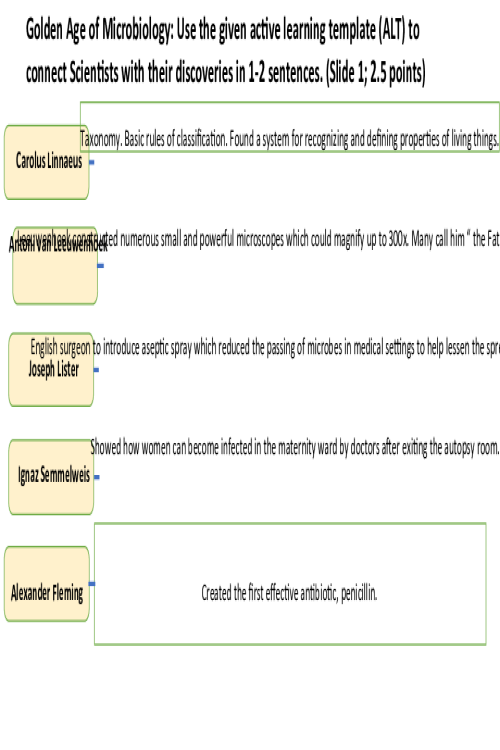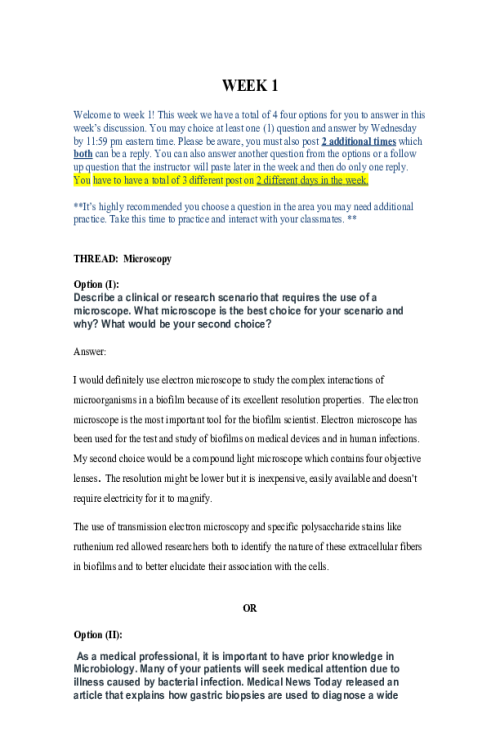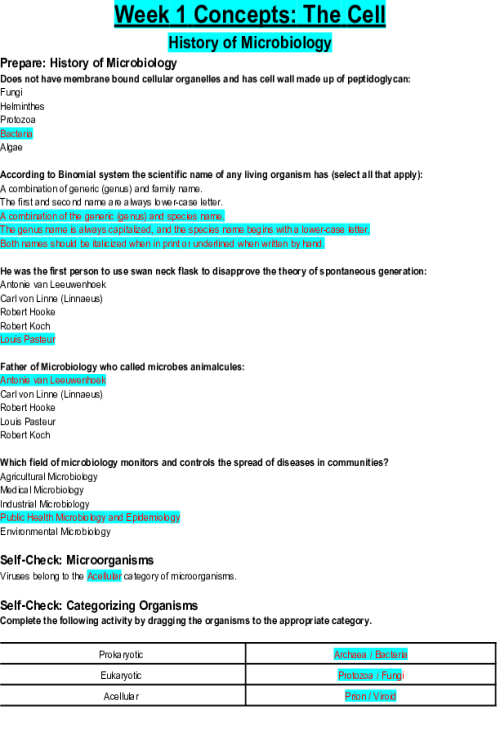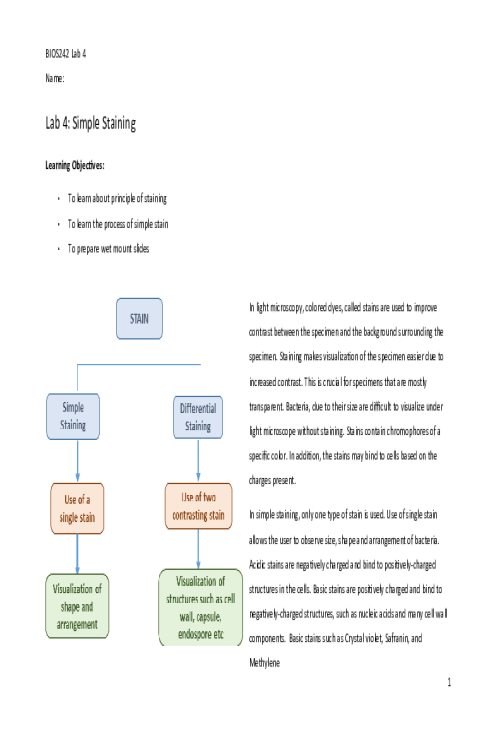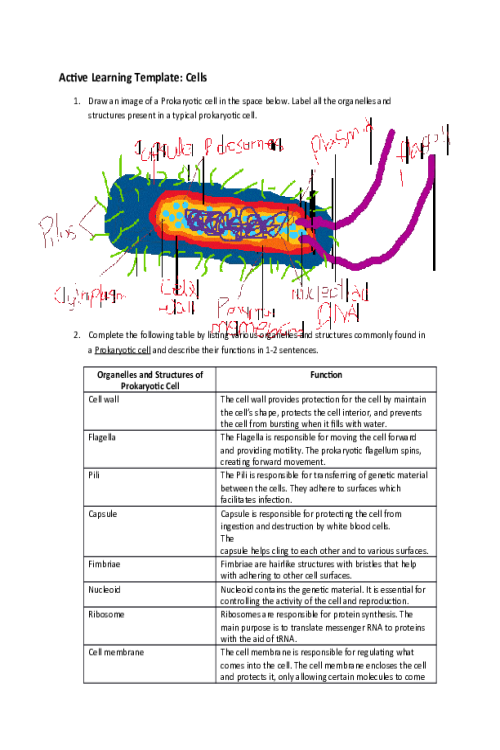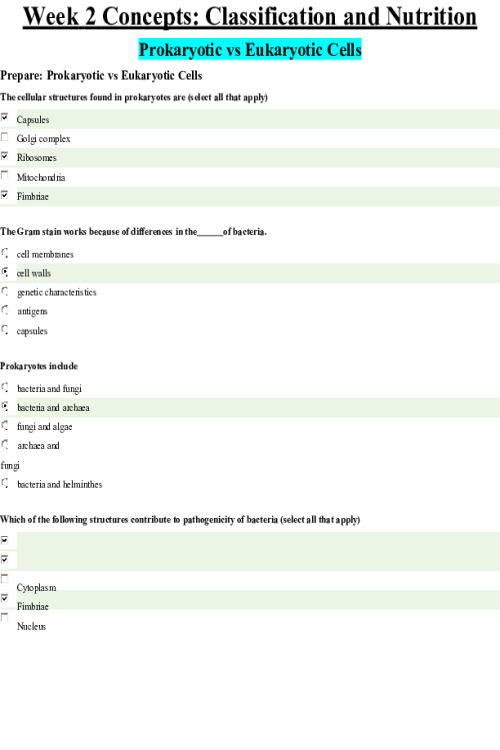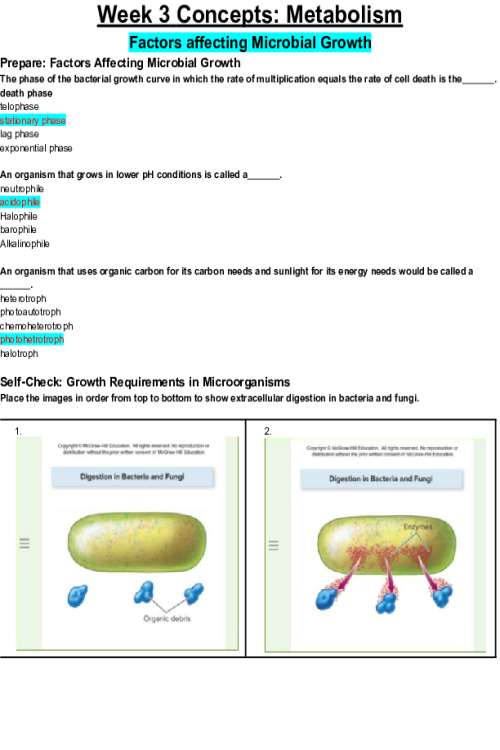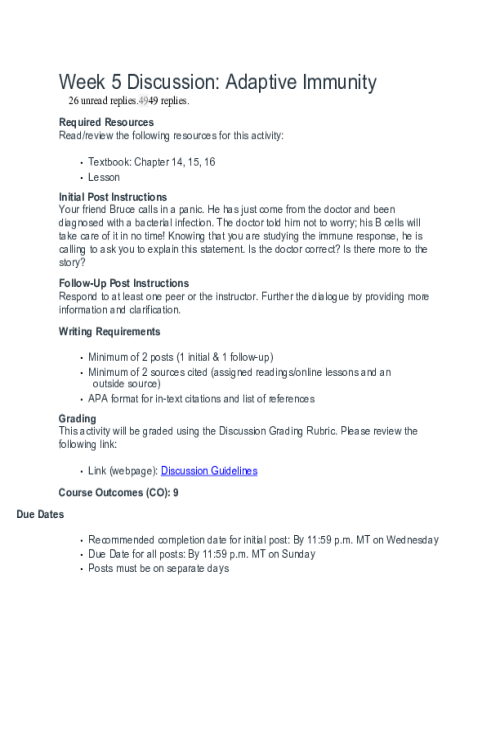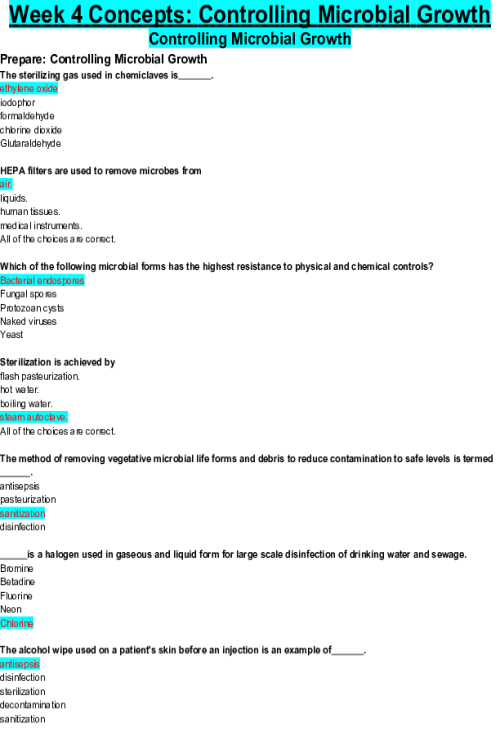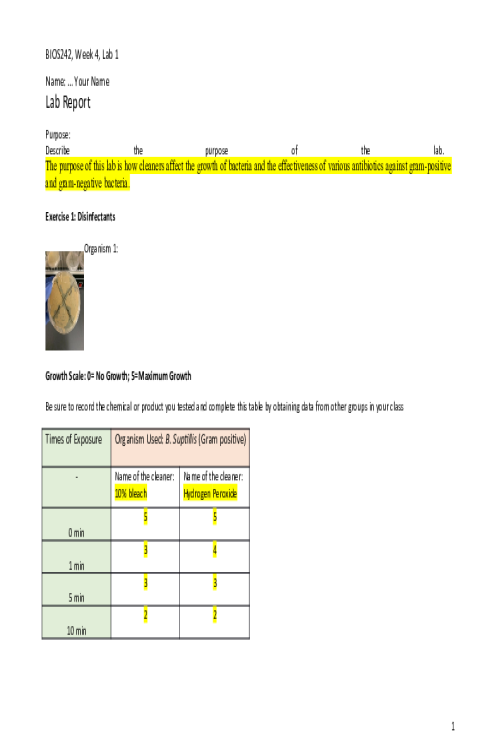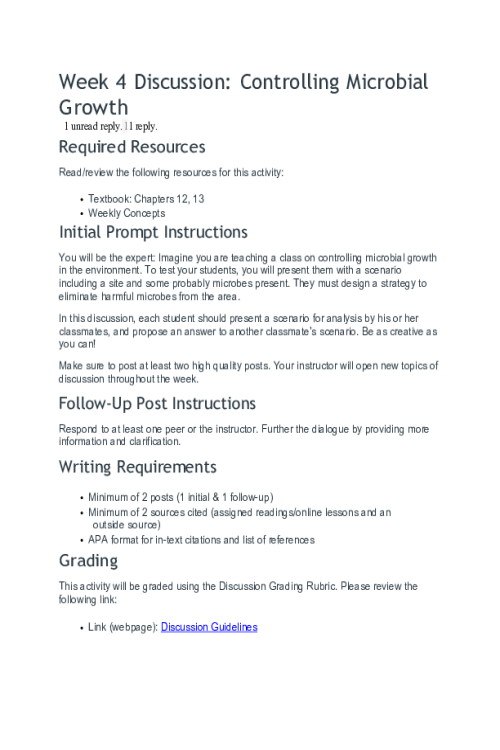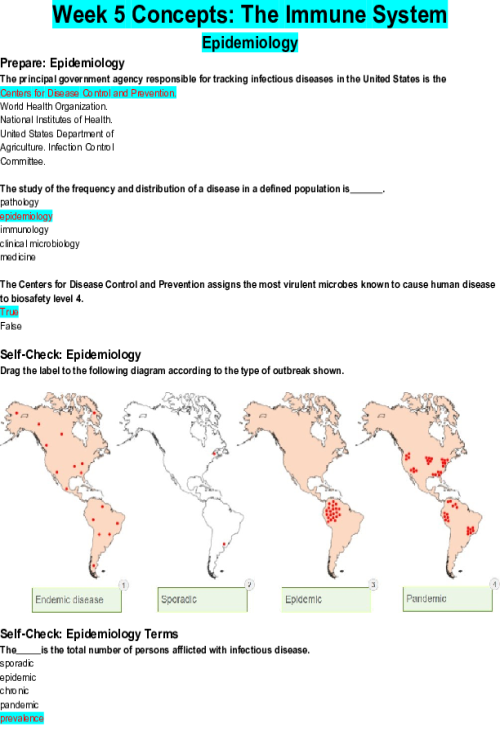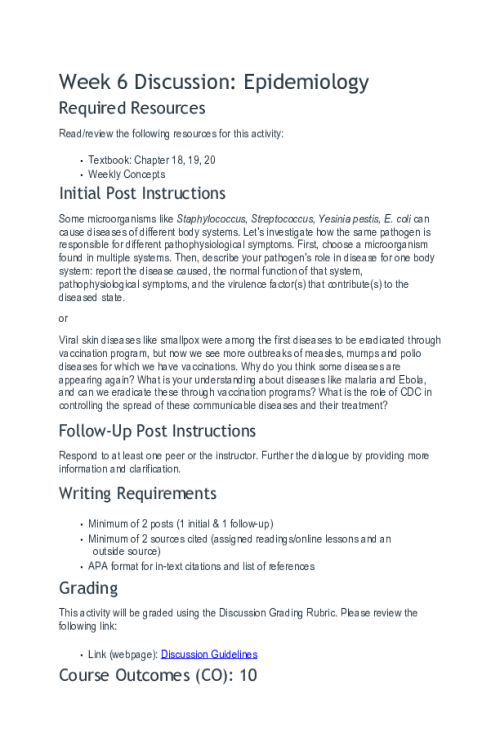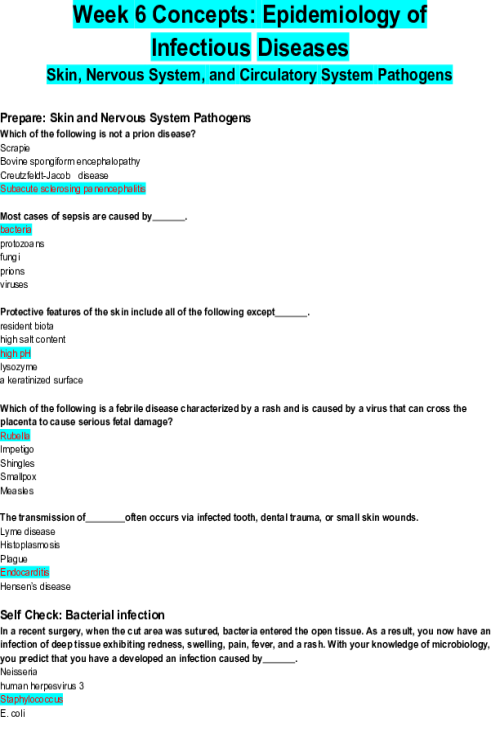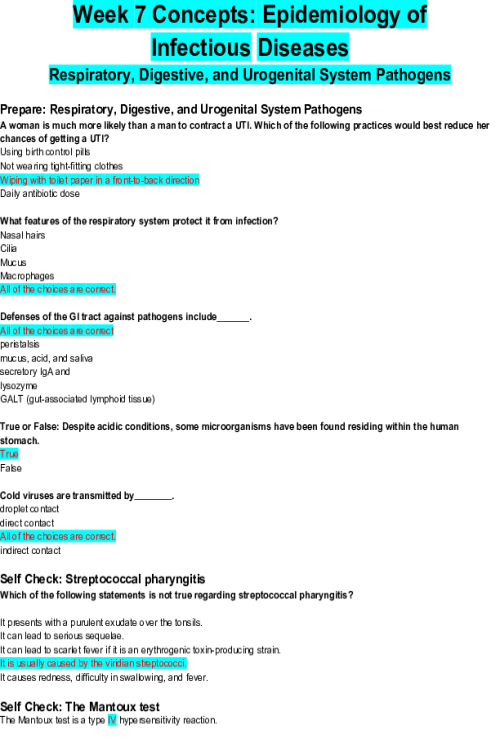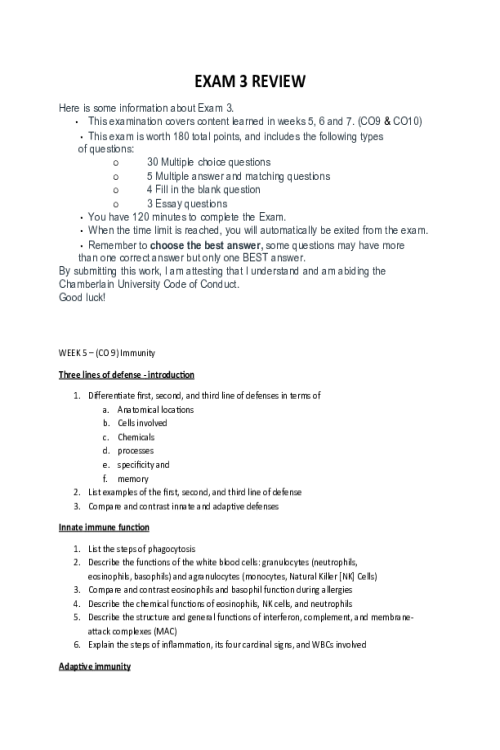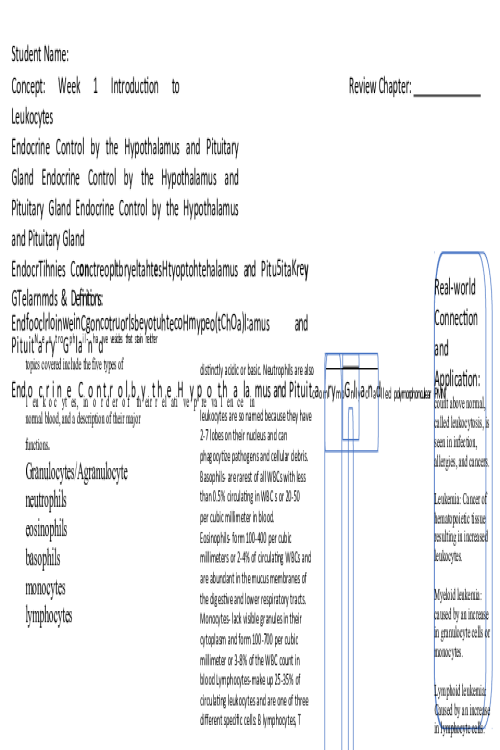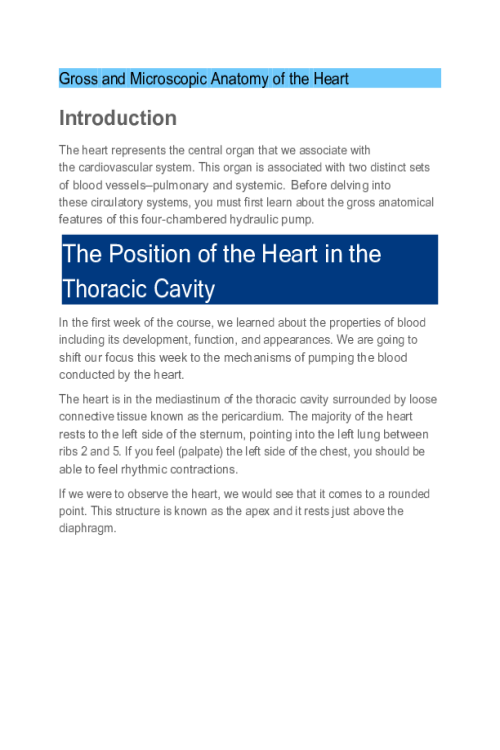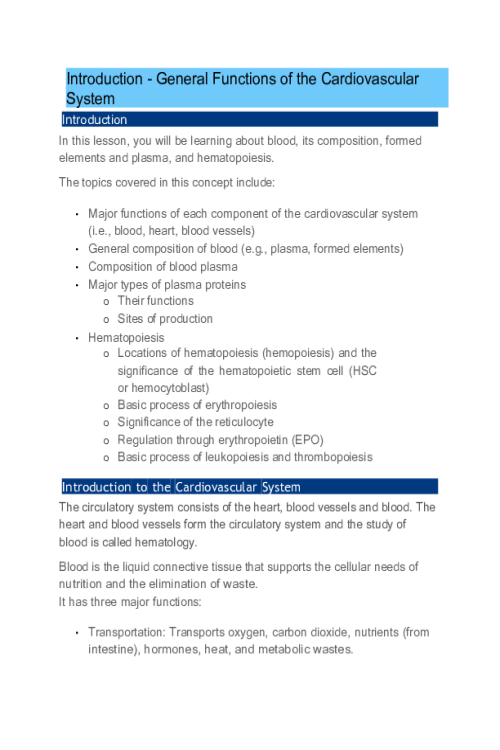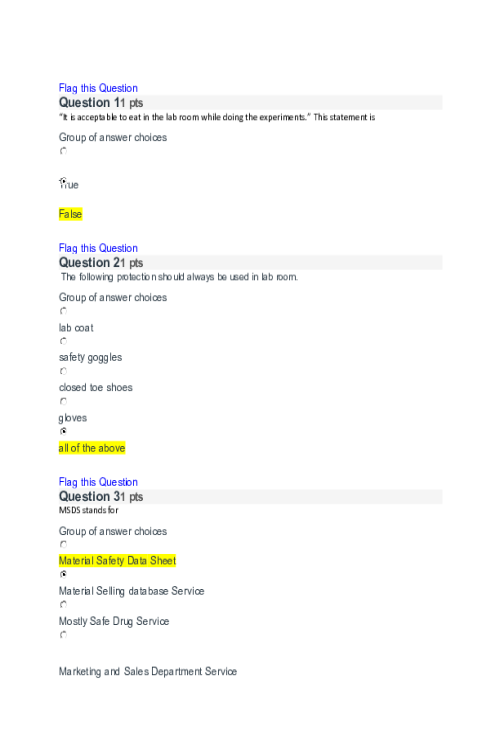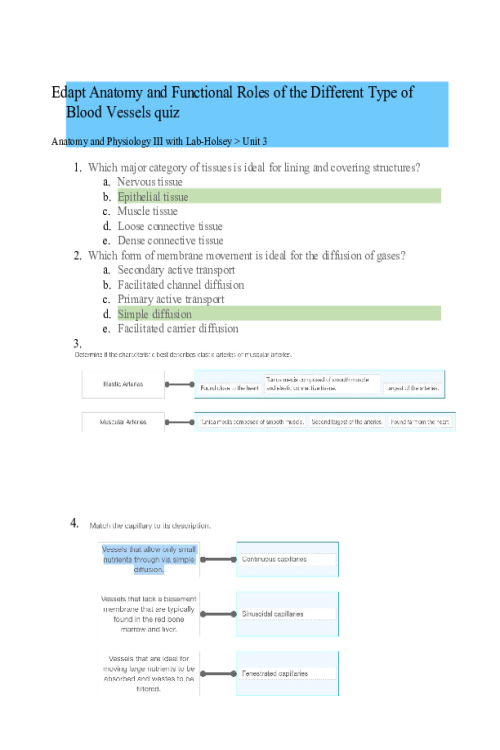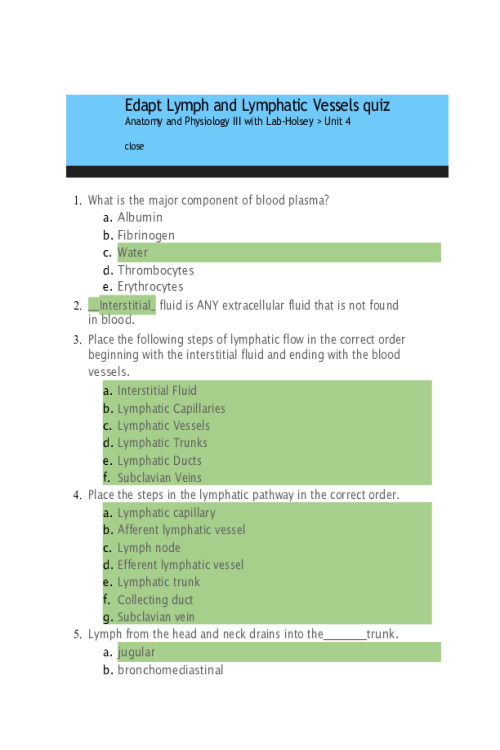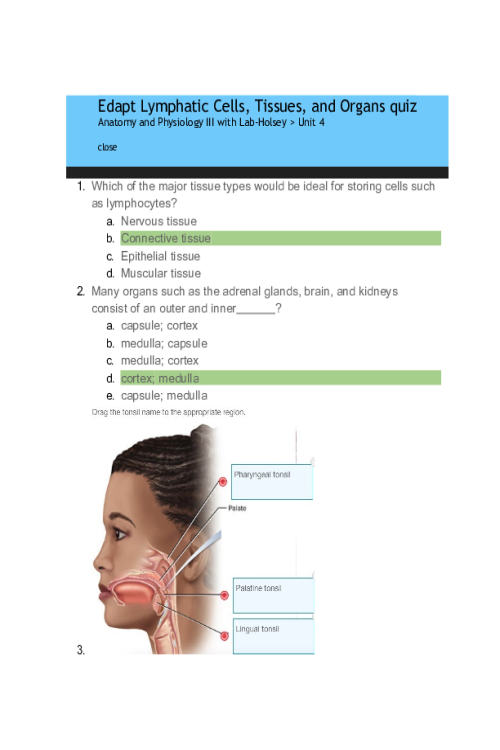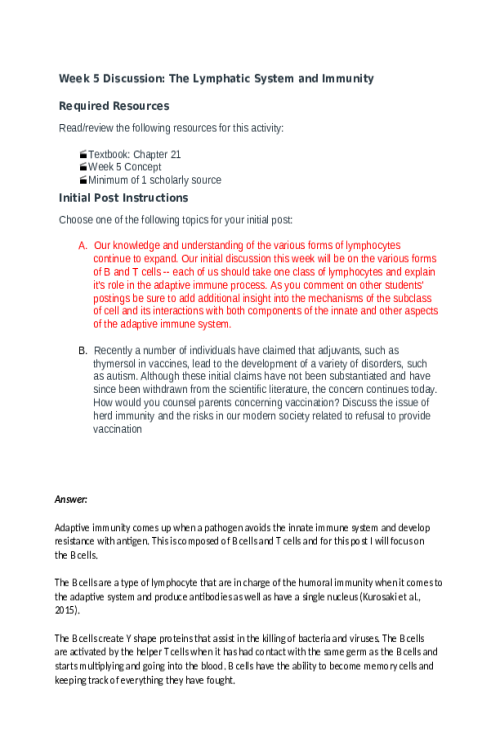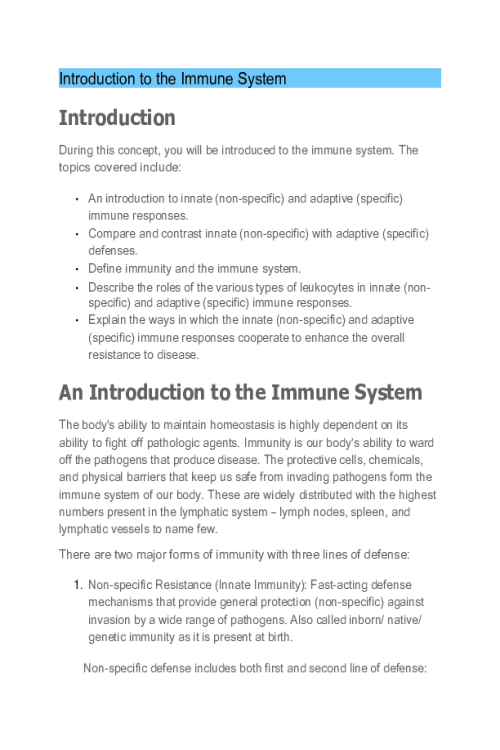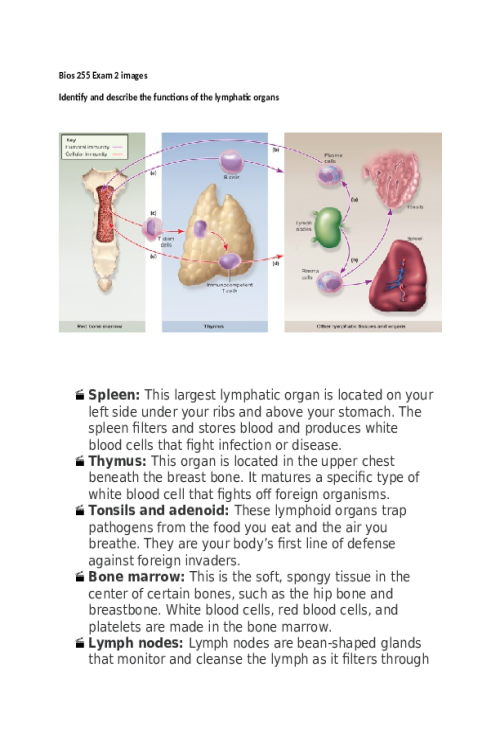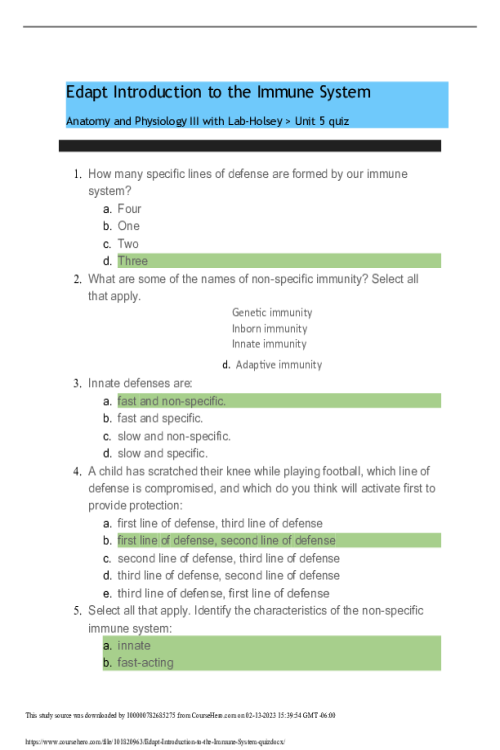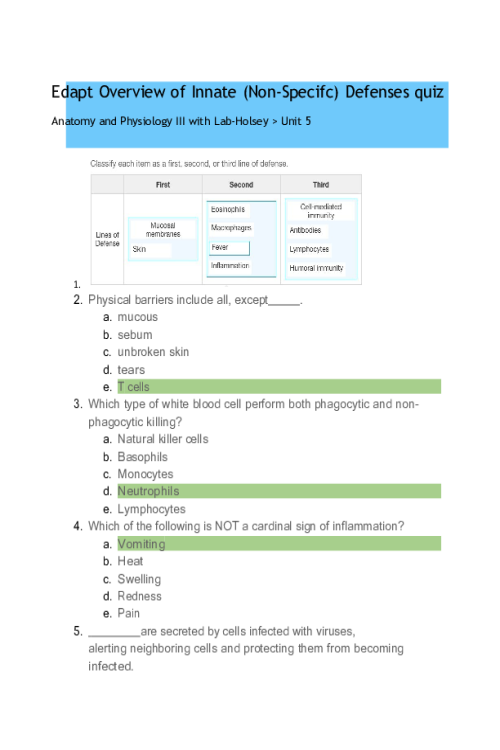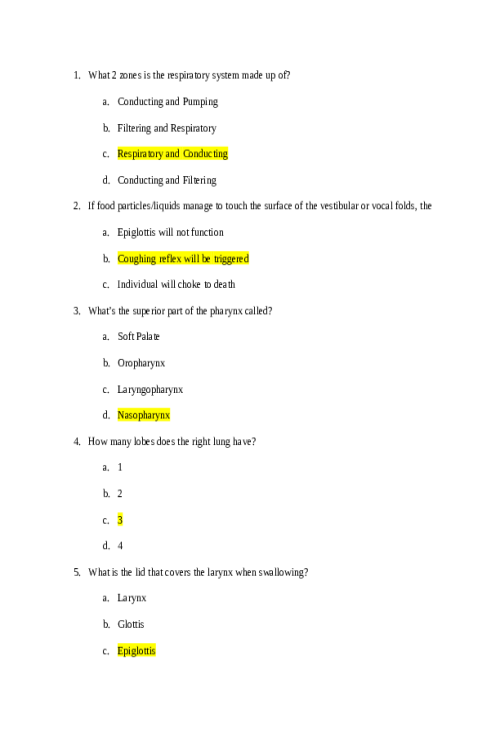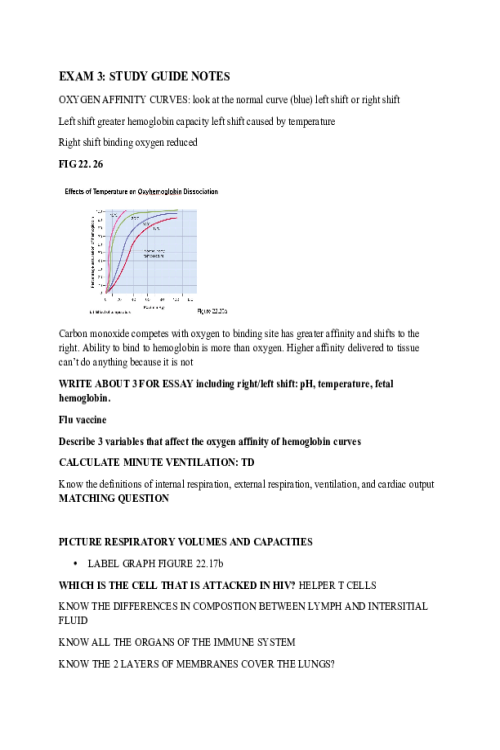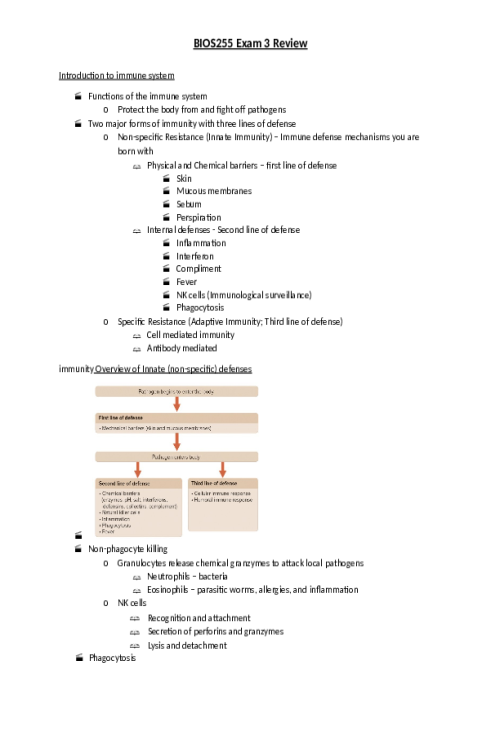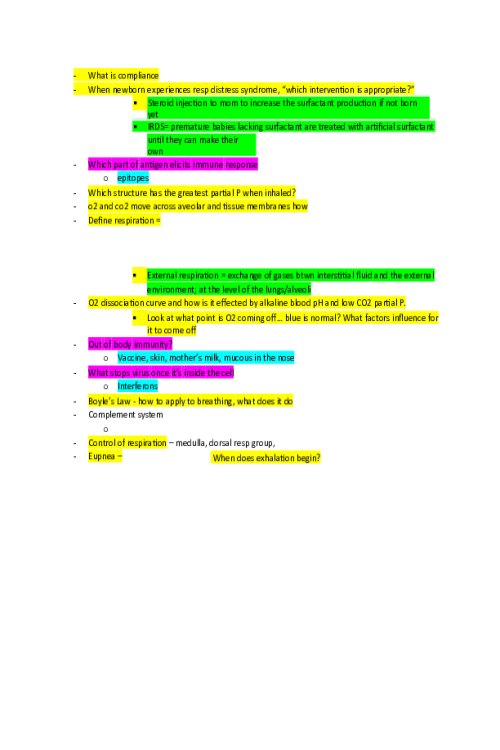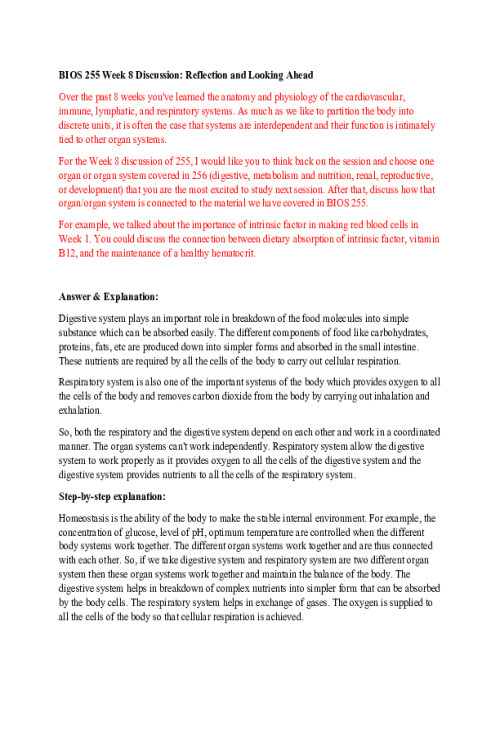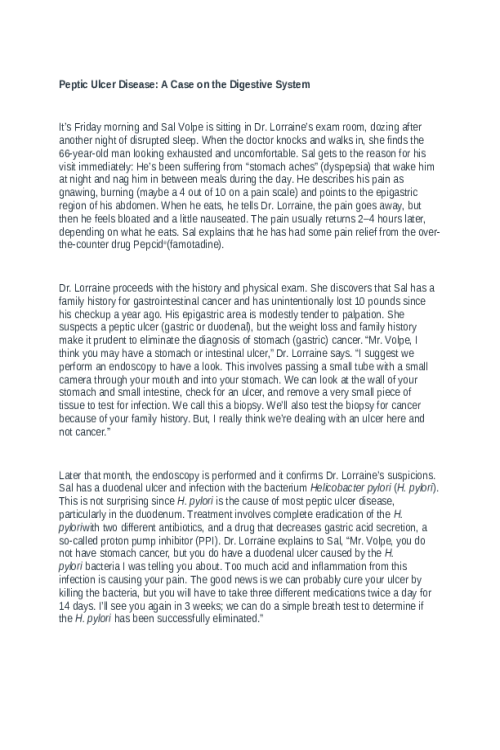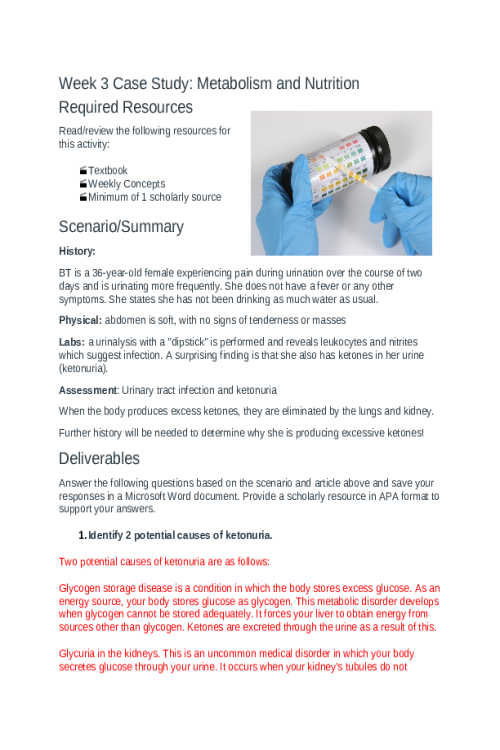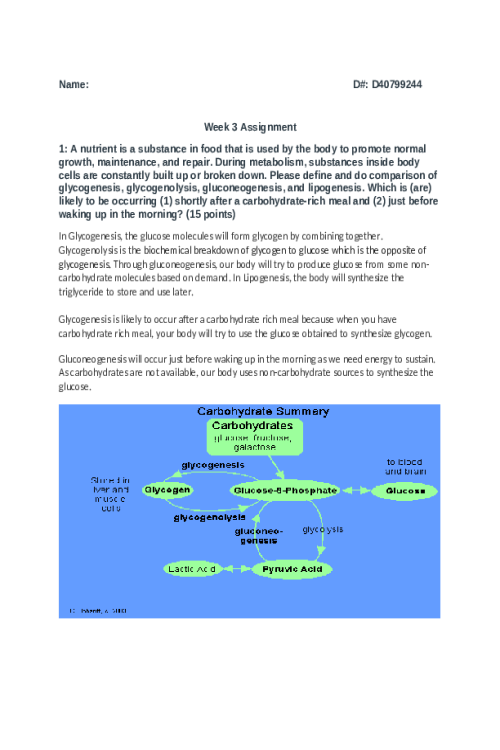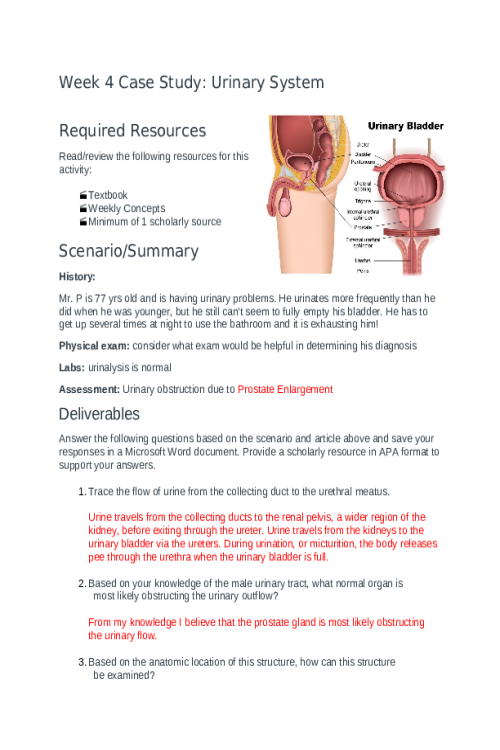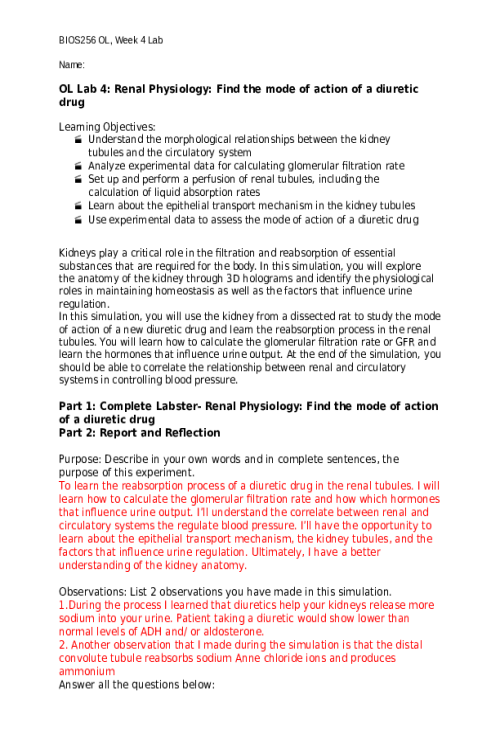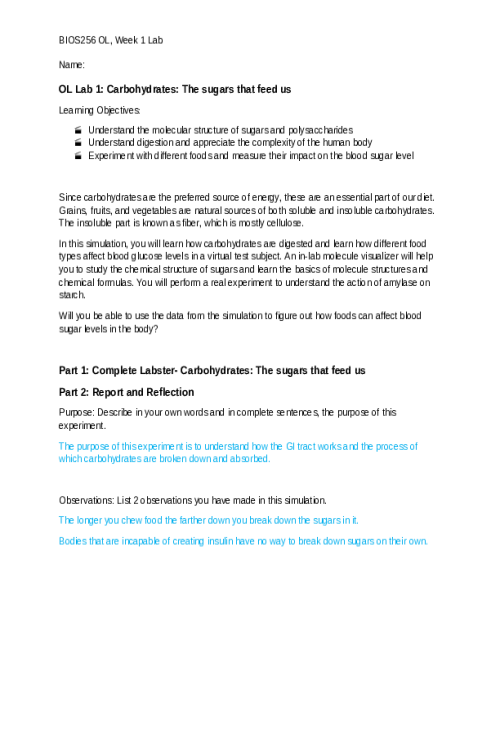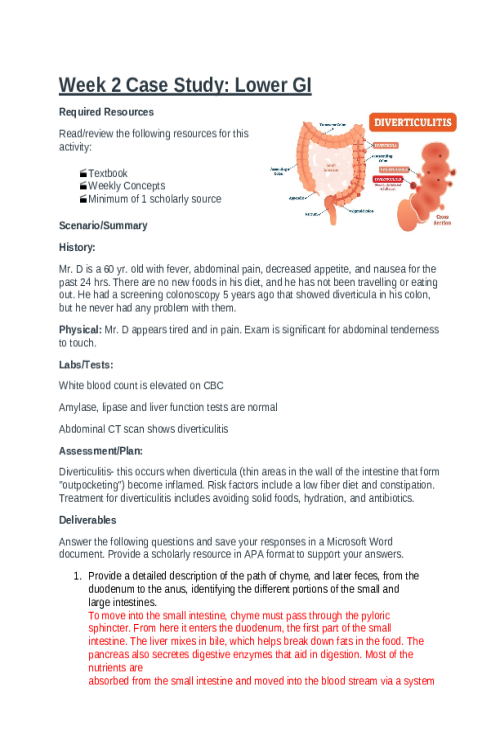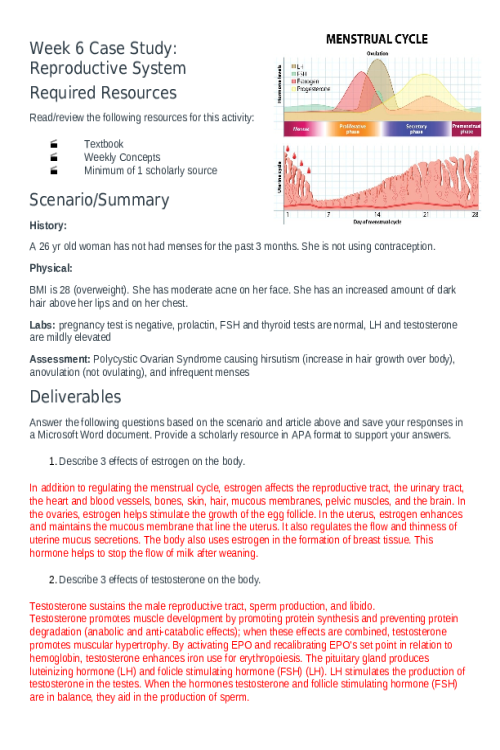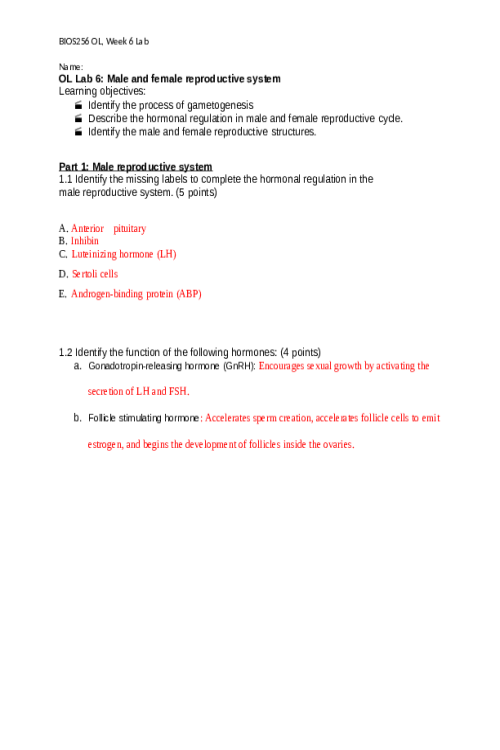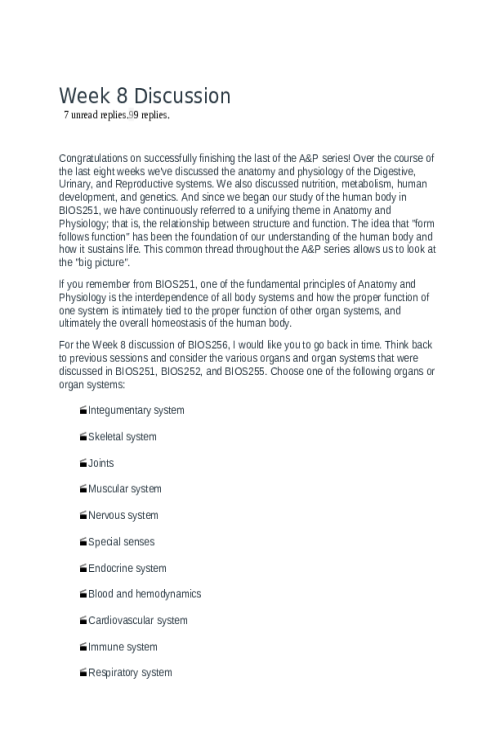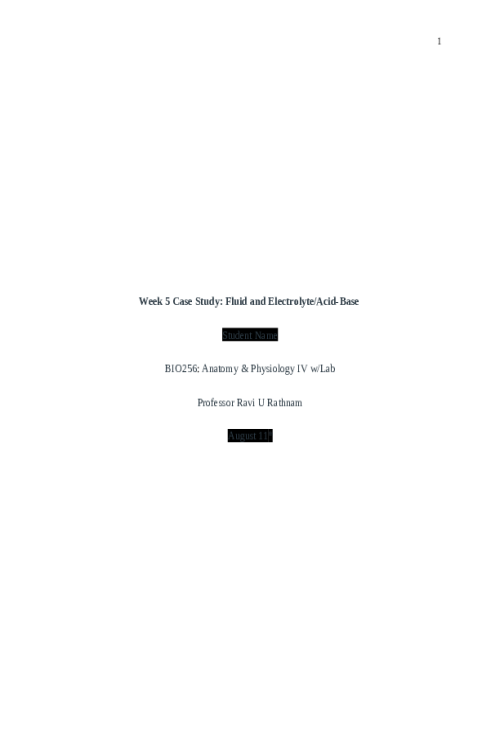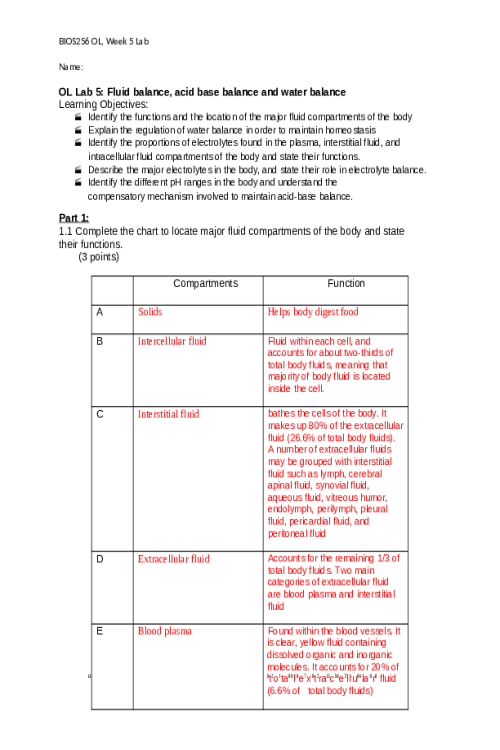BIOS 255 Week 4 Concepts I The Lymphatic System
General Functions of the Lymphatic System Introduction Major Functions of the Lymphatic System The lymphatic system is a multipurpose collection of organs, vessels, tissues, and a fluid called lymph. Lymphatic vessels transport the lymph through the body. Lymphatic tissues, lymphatic organs, and specialized reticular tissue containing large numbers of lymphocytes and various other phagocytes monitor this fluid and play a critical role in the defense of our body from foreign pathogens and even our own cancerous cells. The lymphatic system is a multifaceted organ system with a great variety of functionality including fluid balance, formation of lymph, lipid absorption and transport, and immunity. Fluid Balance In a single day, about 30 L of fluid will leave the blood in the systemic capillaries into the interstitial fluid. Of this 30 L, only about 27 L will return to the blood. As we will see in the coming weeks, the amount of substances entering an area of the body must equal what comes out, lest edema should occur. As such, lymphatic capillaries will act to collect the remaining fluid in the form of lymph. Formation of Lymph This lymph will be composed of a mixture of water, ions, and various proteins. It is the result of the filtration of blood plasma and the absorption of interstitial fluids. This lymph will give the means of transport of pathogens to lymph nodes to eliminate infection and can aid in the production of lymphocytes. Lipid Absorption and Transport Lacteals are lymphatic structures found within the lining of the small intestine. These lacteals will absorb lipids and various other substances that we will learn about in AP4. When the lipids enter the lacteals, they will pass through the lymphatic vessels until they reach the veins. This lipid containing lymph is known as chyle and will appear white. Immunity Foreign bodies such as pathogens and microorganisms will be filtered from the lymph via lymph nodes and from the blood via the spleen. Lymphocytes that are produced within the lymphatic system are capable of targeting and destroying pathogens, preventing 9144001014433infection. When discussing many infectious diseases, it is important to note that these diseases may produce symptoms associated with the lymphatic system due to its role in fighting infection and filtering blood and lymph. Lymph and Lymphatic Vessels Introduction The lymphatic system consists of a complex series of vessels that carries the fluid lymph from the interstitial fluid of the tissues to the Whole Blood, Plasma, Interstitial Fluid, and Lymph subclavian veins. Though the lymphatic vessels are similar to those of the circulatory system, there are a number of differences that must be understood in order to see how these vessels function. One of the most crucial topics that nurses need to learn is how fluid moves into and out of cells and tissues. There are several terms associated with the fluids depending on where they are found. Previously we learned that the fluid inside the cell is known as cytoplasm. We will now turn to the form of fluid found outside of the cell, the extracellular fluid. One of these extracellular fluids we have discussed this session is blood. There, we learned about the major components of blood. Whole blood refers to blood that can be drawn directly from the body that will consist of the formed elements (erythrocytes, leukocytes, and thrombocytes), various proteins, and blood plasma. This plasma refers to the fluid of blood that does not include the formed elements but is
Related Products
BIOS 242 Week 1 Assignment; Lab 1 of 14 Onsite - Culture Transfer Techniques
Contributor: Matthew Lillard
$10.00
BIOS 242 Week 1 Assignment; Lab 2 of 14 Onsite - Isolation of Pure Cultures
Contributor: Matthew Lillard
$10.00
BIOS 242 Week 2 Assignment; Lab 3 of 14 Onsite; Microscopy Observation of Cells
Contributor: Matthew Lillard
$10.00
BIOS 242 Week 2 Discussion; Characteristics of Prokaryotes and Eukaryotes Cells
Contributor: Matthew Lillard
$10.00
BIOS 242 Week 2 Assignment; Concepts; Classification and Nutrition
Contributor: Matthew Lillard
$10.00
BIOS 242 Week 3 Assignment; Lab 6 of 14 Onsite; Carbohydrate Fermentation
Contributor: Matthew Lillard
$10.00
BIOS 242 Week 3 Discussion; Culturing Microorganisms - Halobacterium noricense
Contributor: Matthew Lillard
$10.00
BIOS 242 Week 3 EXAM 1. Chapters 1, 3, 4, 5, 6, 9 - Multiple Choice Review Questions
Contributor: Matthew Lillard
$10.00
BIOS 242 Week 3 Assignment; Lab 5 of 14 Onsite; Differential Staining
Contributor: Matthew Lillard
$10.00
BIOS 242 Week 5 Assignment; Lab 10 of 14 Onsite; How Germs Spread..
Contributor: Matthew Lillard
$10.00
BIOS 242 Week 5 Assignment; Lab 9 of 14 Onsite; Food Safety.docx
Contributor: Matthew Lillard
$10.00
BIOS 242 Week 4 Assignment; Concepts; Controlling Microbial Growth
Contributor: Matthew Lillard
$10.00
BIOS 242 Week 4 Assignment; Lab 7 of 14 Onsite; Disinfectants and Antibiotics
Contributor: Matthew Lillard
$10.00
BIOS 242 Week 4 Assignment; Lab 8 of 14 Onsite; Fomite Transmission
Contributor: Matthew Lillard
$10.00
BIOS 242 Week 6 Assignment; Pick Your Pathogen - Clostridium Perfringens
Contributor: Matthew Lillard
$10.00
BIOS 242 Week 6 Assignment; Concepts; Epidemiology of Infectious Diseases
Contributor: Matthew Lillard
$10.00
BIOS 242 Week 6 Assignment; Lab 11 0f 14 Onsite; Bacteria of the skin
Contributor: Matthew Lillard
$10.00
BIOS 242 Week 6 Assignment; Lab 12 0f 14 Onsite; Bacteria of Respiratory System
Contributor: Matthew Lillard
$10.00
BIOS 242 Week 7 Assignment; Lab 14 of 14 Onsite; Unknown Bacteria
Contributor: Matthew Lillard
$10.00
BIOS 242 Week 8 EXAM 3 Review. Chapters 14-23 (Excluding 16, 17)
Contributor: Matthew Lillard
$10.00
BIOS 242 Week 7 Assignment; Lab 13 of 14 Onsite; Bacteria of Digestive System
Contributor: Matthew Lillard
$10.00
BIOS 255 Week 1 Virtual Lab; Hematology Part I, Part II, Part III
Contributor: Chandler Hallow
$10.00
BIOS 255 Week 2 Virtual Lab; Cardiovascular Function during Exercise Part 1, Part II, Part III
Contributor: Chandler Hallow
$10.00
BIOS 255 Week 3 Concepts I The Cardiovascular System- Blood Vessels (Quiz)
Contributor: Matthew Lillard
$10.00
BIOS 255 Week 4 Assignment; Case Study I Natural Killer Cell Deficiency
Contributor: Matthew Lillard
$10.00
BIOS 255 Week 4 Concepts; The Lymphatic System (Edapt Lymph, Lymphatic Vessels Quiz)
Contributor: Matthew Lillard
$10.00
BIOS 255 Week 4 Concepts; The Lymphatic System (Edapt Lymphatic Cells, Tissues, Organs Quiz)
Contributor: Matthew Lillard
$10.00
BIOS 255 Week 5 Discussion; The Lymphatic System and Immunity; Option A
Contributor: Matthew Lillard
$10.00
BIOS 255 Week 5 Virtual Lab; Introduction to Immunology Part I, Part II
Contributor: Matthew Lillard
$10.00
BIOS 255 Week 5 Assignment; Case Study I Hypersensitivity Reactions
Contributor: Matthew Lillard
$10.00
BIOS 255 Week 5 Concepts; The Immune System (Edapt Immune System Quiz)
Contributor: Matthew Lillard
$10.00
BIOS 255 Week 5 Concepts; The Immune System (Edapt Innate Defenses Quiz)
Contributor: Matthew Lillard
$10.00
BIOS 256 Week 2 Discussion; Peptic Ulcer Disease; A Case on the Digestive System.
Contributor: Daniel Sturridge
$10.00
BIOS 256 Week 2 OL Lab 2; Intestinal Glucose Transport; Study a mouse intestine model todiagnose an infant
Contributor: Daniel Sturridge
$20.00
BIOS 256 Week 3 Discussion; Glycogenesis, glycogenolysis, gluconeogenesis, and lipogenesis
Contributor: Daniel Sturridge
$10.00
BIOS 256 Week 3 OL Lab 3; Cellular Respiration; Measuring energy consumption during exercise
Contributor: Daniel Sturridge
$20.00
BIOS 256 Week 4 OL Lab 4; Renal Physiology; Find the mode of action of a diuretic drug
Contributor: Daniel Sturridge
$20.00
BIOS 256 Week 1 OL Lab 1; Carbohydrates The sugars that feed us
Contributor: Daniel Sturridge
$20.00
BIOS 256 Week 2 Discussion; Peptic Ulcer Disease; A Case on the Digestive System..
Contributor: Daniel Sturridge
$10.00
BIOS 256 Week 6 Discussion; male and female reproductive systems
Contributor: Daniel Sturridge
$10.00
BIOS 256 Week 7 OL Lab 7; Mendelian Inheritance From genes to traits
Contributor: Daniel Sturridge
$20.00
BIOS 256 Week 5 Discussion; Fluid balance, electrolyte balance, and acid-base balance
Contributor: Daniel Sturridge
$10.00
BIOS 256 Week 5 OL Lab 5; Fluid balance, acid base balance and water balance
Contributor: Daniel Sturridge
$20.00
